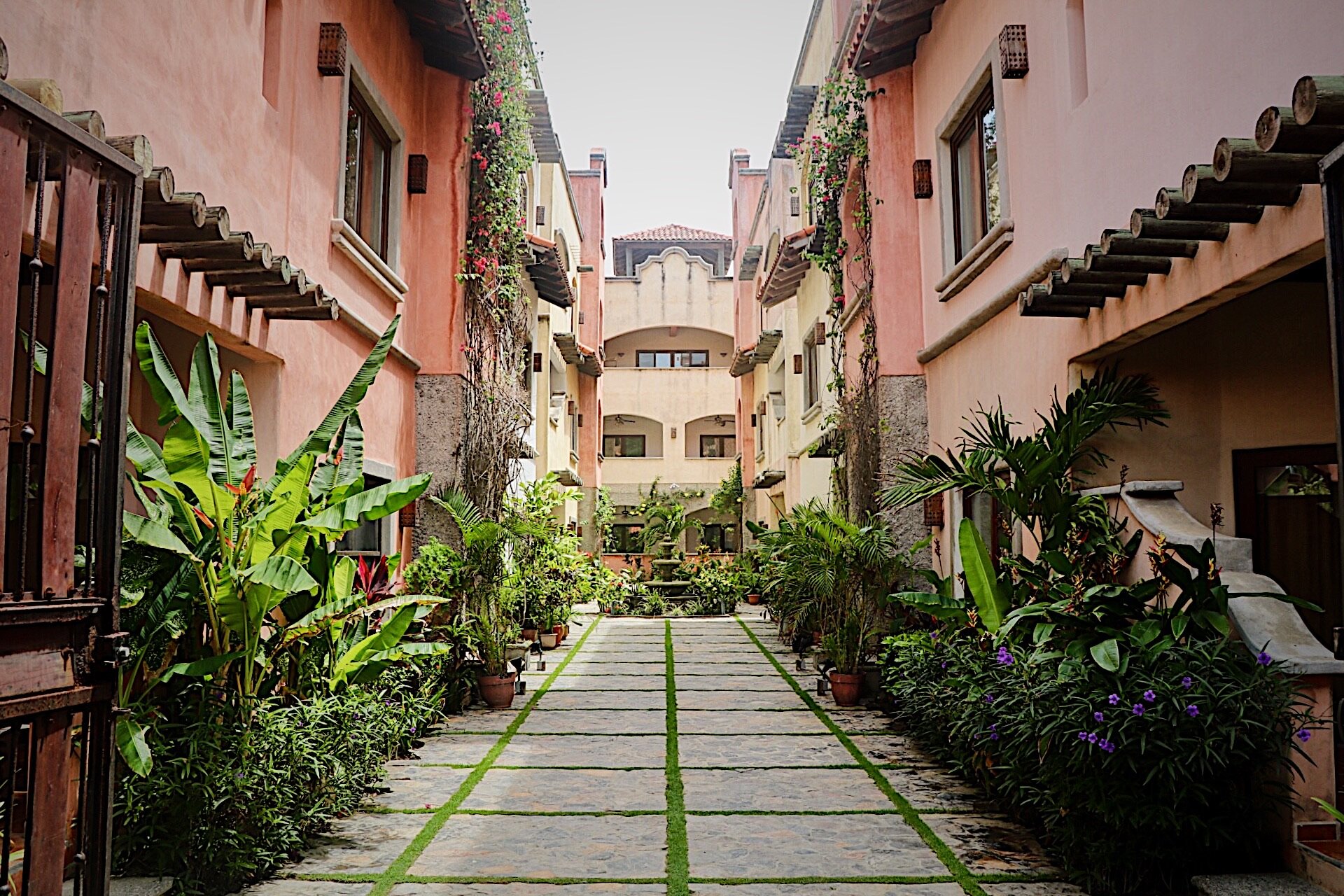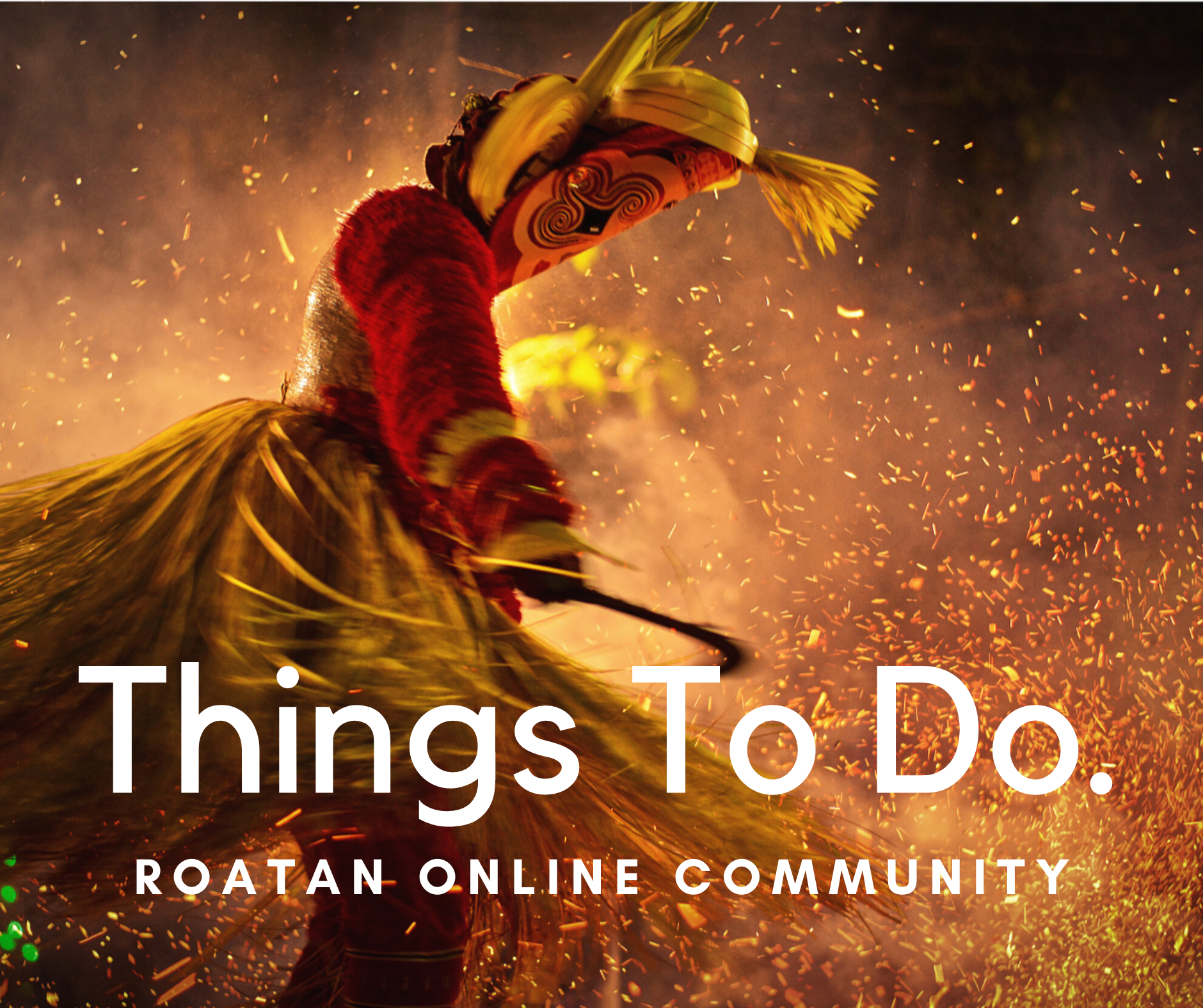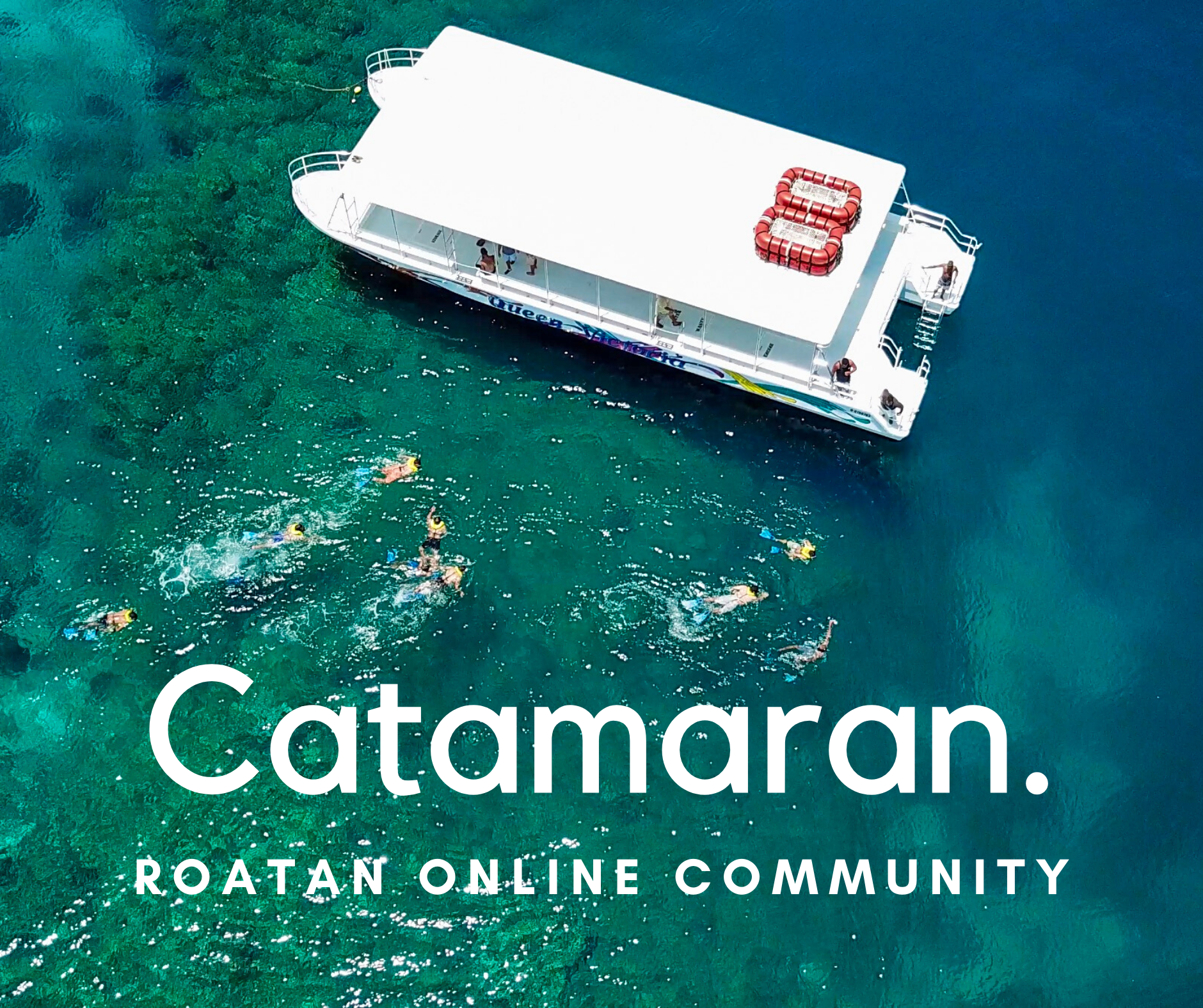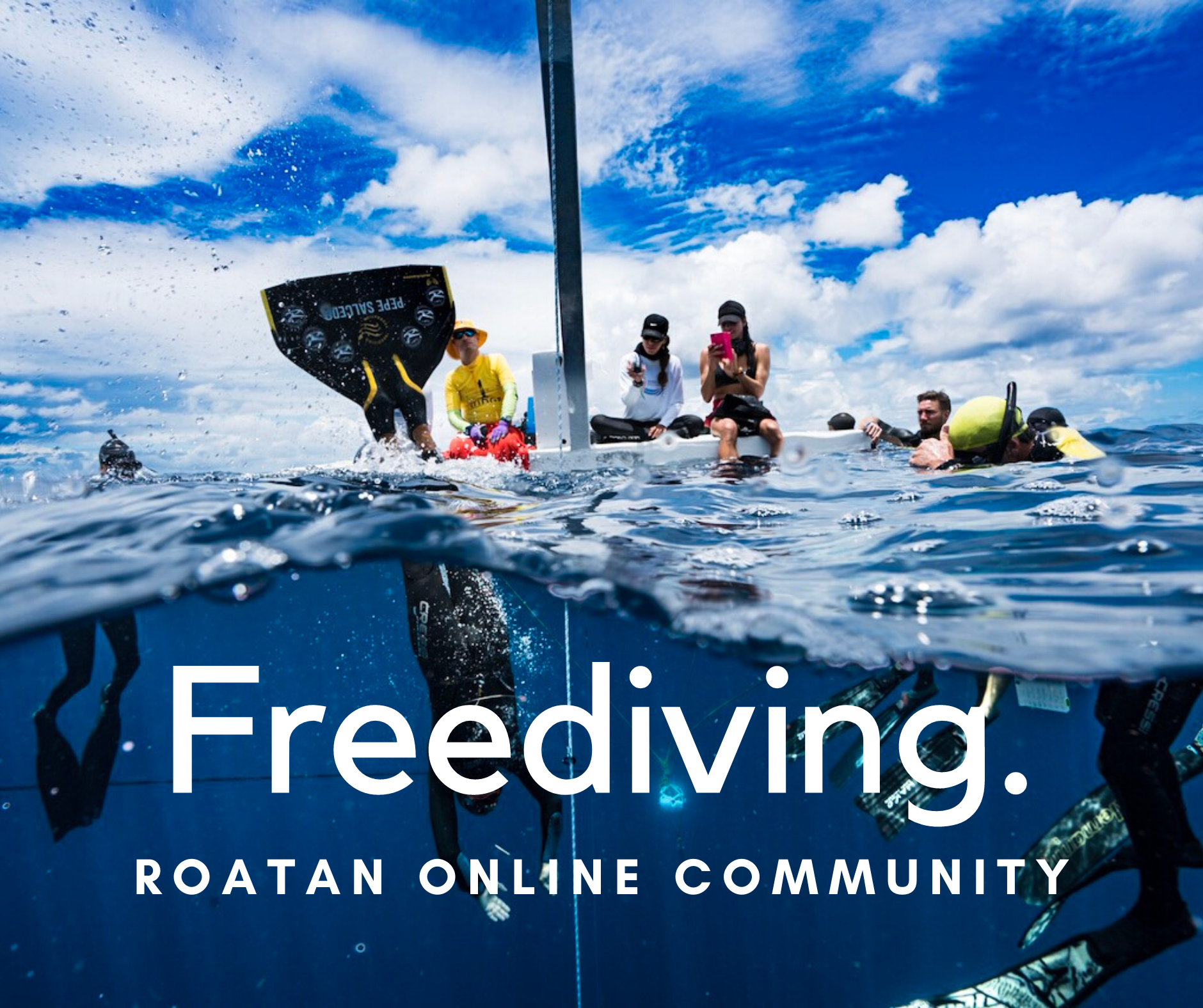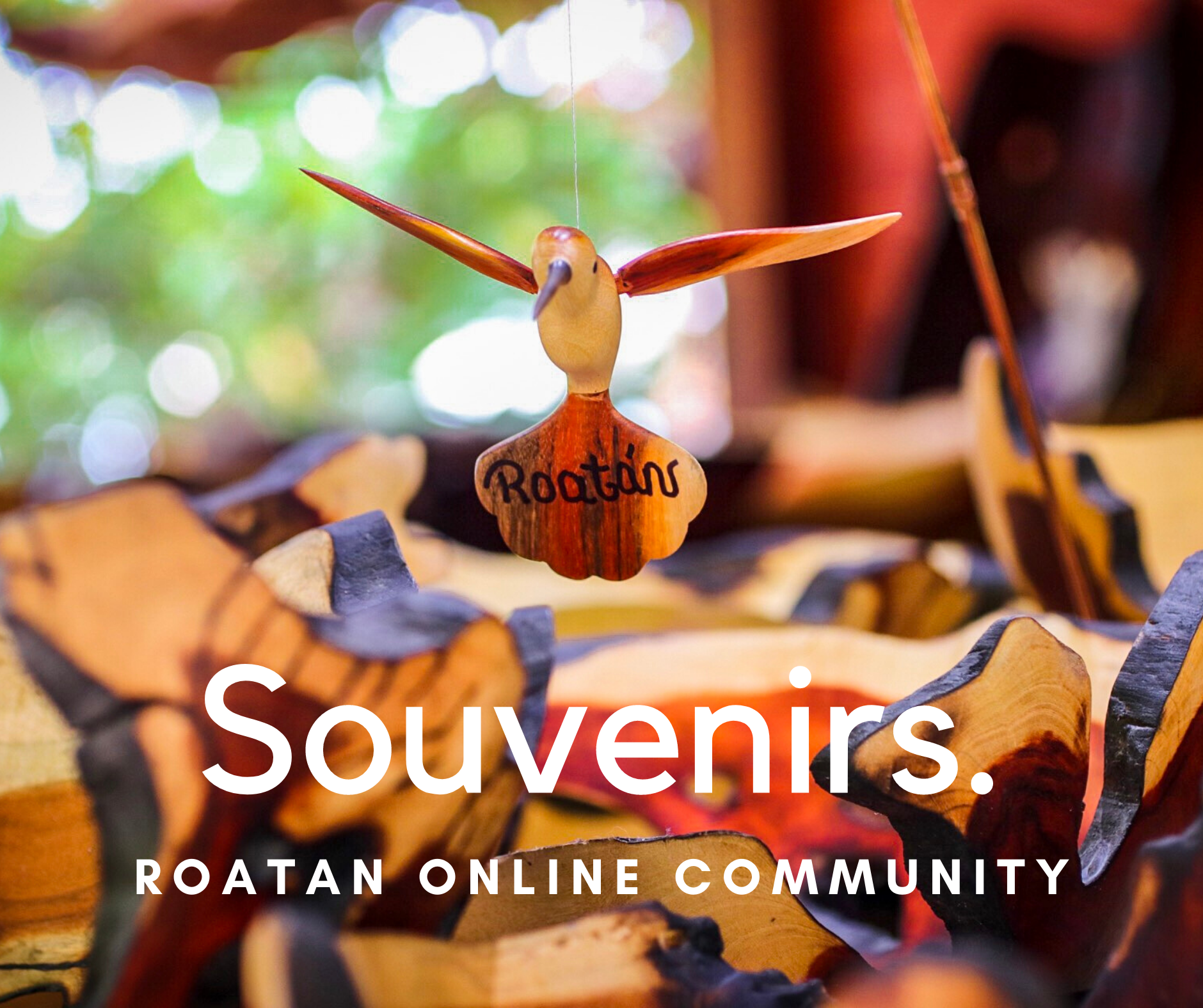
by Roatan, for Roatan.
SEARCH OUR SITE
Roatan Community.
ROATAN is an island off the northern coast of Honduras and formed by the Bonacca Ridge, which is an underwater mountain range. Located in the western Caribbean, The island is approximately 40 miles long, 3 miles wide and has annual temperatures with highs of 89.6°F (32°C) and lows of 77°F (25°C). The Bonacca Ridge is responsible for the formation of several small islands and Keys in the surrounding areas including the Island of Utila and Guanaja. Roatan is home to the largest barrier reef in the northern hemisphere.
LEARN MORE about our Roatan Online project and sister sites.
Roatan Tours.
Roatan offers a variety of things to do both on land and below the surface. Let us show you around our island and give you ideas for something to do.
Coral Paradise.
Voted a top Caribbean destination year over year, Little French Key is one you don't want to miss. Once on the key, you won't want to leave as all that you need is there - at your fingertips—great fun for the entire family.
Deep Thinker.
Home of the Deep Thinker and one of Roatan's premier dive centers, the Scuba Shop offers the best Scuba Diving services. The shop is only a short boat ride from Roatan's best dive site - Macy's Place.
Adorable Awaits.
The Sloth Tour is probably the most photographed tour on our island. How could it not be? - The sloths are adorable and so friendly. They embody the island spirit and believe us when you tell you; they are absolutely on island time!
Animal Sanctuary.
The park is perfect for the entire family. Gumbalimba offers a museum, a suspension bridge, free flying Macaws, free-roaming white-faced monkeys, a full zip-line course, beach access, a pool, and a courageous botanical garden. You cannot go wrong with this excursion.
Our Culture.
The Garifuna are a mix of people from West Africa, Carib Islands, and Central Africa. Known by British colonial administrators in the early days as "Black Carib" and "Garifuna" so that they could be distinguished from "Red" or "Yellow" Caribs, which were the original Amerindian population before intermixing with Africans.
iSoar.
iSOAR ROATAN is sailboat which is moored in the sheltered waters of Half Moon Bay. The sailboat has been retrofitted with dive platforms, rope swings, and rock climbing footholds. iSoar is free to the public, and it is quickly becoming a Roatan favorite. The iSoar sits in about 20 ft of water with a seagrass bottom.
Transportation.
Travel like a pro and book in advance. Our driver will hold out a sign with your name on it, and that alone will save you grief. Avoid throwing elbows with other tourists when you first arrive and see to it that you have your Taxi driver pre-booked.
Socialize, Online.
Roatan is unique in that it has a modern public forum which is managed by community members who live on Roatan. The forum is a major benefit for future ex-pats looking to learn about Roatan before deciding to move to our island. The forum benefits locals as a community outreach.

Real Estate.
Welcome Home.
First things first.
For starters, you'll need to ask yourself, do you want the more densely populated side of Roatan, or do you prefer the more isolated and less known side of the island? - Roatan still offers pristine tropical land that is ready for development. It also offers already established homes that are ready for you to move in.
Mature Industry.
For years, buying a property on Roatan was synonymous with a bad title or deed experience. The real estate market was dangerous and risky and especially to the foreign buyer and investor. But the arrival of the cruise ships drove demand for property up, and it forced the maturity in the real estate decorum and practices.
Today, Roatan's real estate is stable and formal. Large, well-known brokerage firms have established themselves on the island and offer agents, realtors, and brokerage services to anyone in the market for a new property on Roatan.
Real Estate Loans.
Borrowing money from a local bank in Honduras is generally not a good idea. Interest rates are high, very high. Further still, many loans require collateral along with a high-interest rate. One of the most common ways to finance a property in Roatan is the take a second mortgage on a property you own in the US. Buyers prefer to use the equity in a US-based property to purchase a home or land in Roatan. Most purchases are cash deals. However, it is not uncommon to see owner finance components on small balances. Despite its recent popularity, Roatan remains an affordable island. This continues to be the case for property values.
Community Living.
While our island is not the large, it’s made of myriad communities with their own distinct flavor. Roatan Island has long been a lure for travelers, residents, investors, missionaries, environmentalist, athletes, divers, photographers, scientist, and explorers from all over the world. Our websites aim to present the realness of Roatan through online content and our various social media platforms. We are doing this so that all who visit can come away with the best Roatan experience possible. We love our island, its people, and our visitors. May we be the first to say, welcome to Roatan. Perhaps one the most attractive qualities of ROA™ is its proximity to the U.S. and Canada. ROA™ enjoys amazing air travel options that take visitors directly to the island in as little as one hour.
Popular Activities.
Snorkeling.
We offer the best snorkeling experience in Roatan. Customers can choose to snorkel off of the Queen Victoria Catamaran, or just off the shore at West Bay beach, or they can snorkel the waters around Little French Key with the Scuba Shop. Let us show you the reef.
Tight Lines!
Sports fishing is popular on our island. You can troll for fish, or you'll have the option to fly fish, or if you're looking to test your skills, we can arrange for you to do a little Artisanal fishing. We'll be sure to do the fishing so that you can do the catching. Let’s have fun.
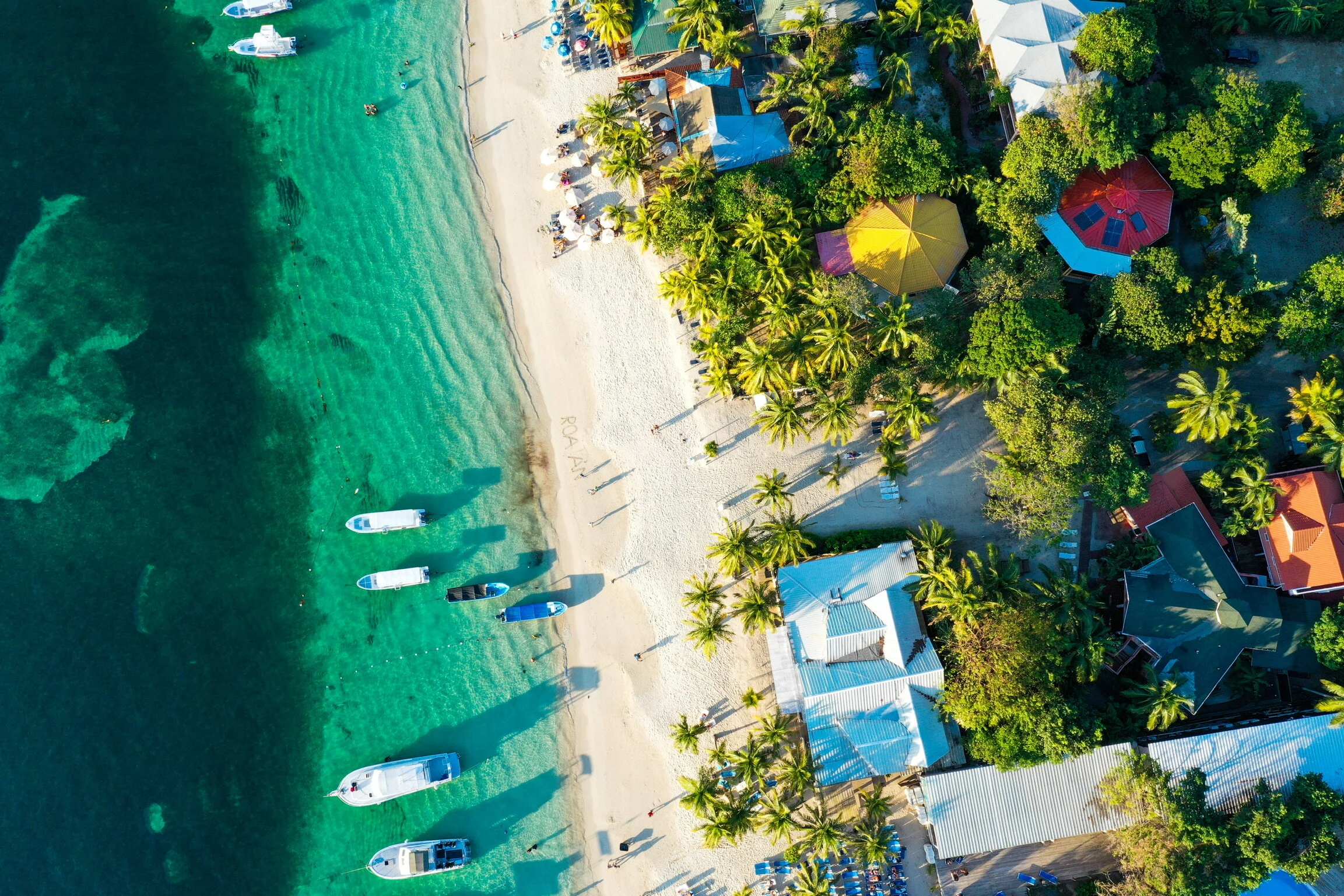
Accommodations.
Hotels & Resorts.
Rentals.
Resorts.
Hotels.
→ Grand Roatan
→ Ibagary
→ Añoranza Roatan
→ Xbalanque
→ Living Waters Home
→ Blue Island Divers
→ Little French Key
→ The Reef House
A Resort for everyone.
Hotels come in all sizes. But few are large establishments like what you might find in Jamaica or Cozumel or any other major touristic hub in the Caribbean. And there is a good reason for the general size and design of the hotels on the island. Historically, the electricity on the island has been centralized. This combined with the fact that that the source of power has come from diesel-powered plants has driven the cost per kilowatt up. Large hotels on ROA™ would struggle to turn a profit with such high energy cost. Central cooling is also cost prohibitive. Another important factor is that cruise ships have not always had Roatan as a port of call. Many of the island's resorts catered primarily to the Scuba Diving community. In days past, the island simply has not had the volume of visitors to offset the high energy cost.
Non-Diving Resorts.
There are many non-diving resorts. And the ones that do exist, inevitably have a relationship with a dive shop nearby. Scuba Diving is too large of a touristic attraction not to have a scuba offering for incoming tourist. Most of the non-diving resorts are small and privately held. Many resorts which do not have a dive center, are not located near the waterfront, so they focus on customer service and offer scuba diving through an affiliate or a referral relationship with a nearby dive shop.

Roatan
Airport (RTB).
Juan Manuel Galvez.
Airlines.
The airport has a nice bar/snack area in the main lobby which can accommodate a small group of travelers who might need to wait for their transportation. Seating is in high demand, so keep your head on a swivel.
Major airlines with weekly arrivals to Roatan include United Airlines, Delta, American Airlines, Air Canada, CM Airlines, Avianca, and Cayman Airways.
Customs.
Depending on your arrival time, it might take 20 or 30 minutes to clear customs. Passengers are fingerprinted, and a photo is made of all incoming visitors. Past immigration, is luggage claim, and then passengers exit the passenger area into the airport lobby and the passenger pickup areas. You'll know you are in the airport lobby whenever you reach a mob of drivers holding signs for their respective resorts or signs with customer names.
Tarmac.
Arriving in RTB has its charm as passengers of all major airlines still deplane onto the tarmac.
The short walk from the aircraft to the small airport provides the first aroma of the island through gentle (and salty) winds.
The sound of the jet engines, the breeze, and the waterfront views from the airport are all reminders that your fun is just beginning.
PRO TIP: Don’t forget to book your taxi ahead of your arrival on Roatan.
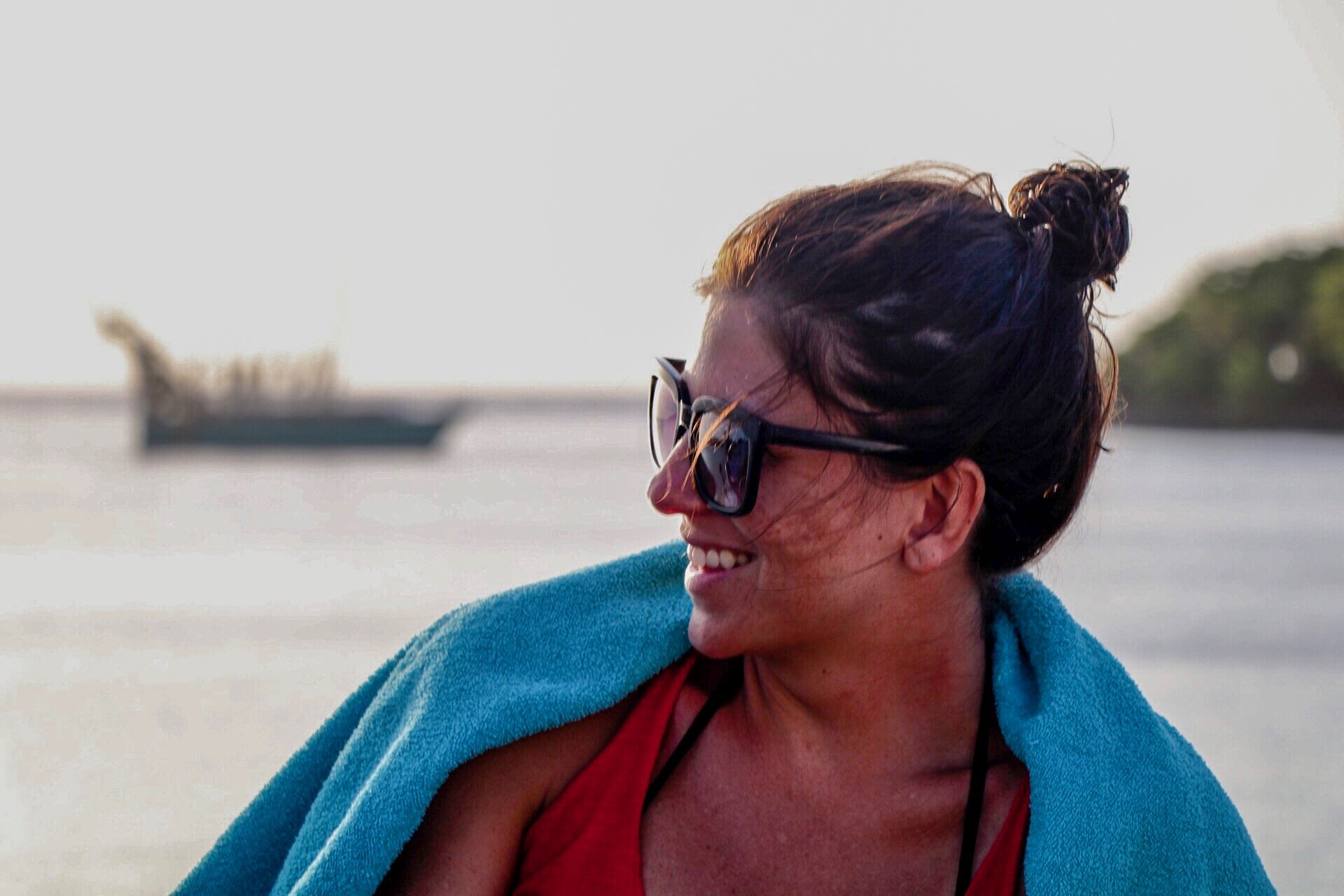
Roatan Lifestyle.
Island Overview.
Local Vibe.
The island has a very "local" feel to it, and you're more likely to find yourself around locals than you are around tourist from other countries. Now, things are changing quickly in that visitors outside of the diving community are growing in numbers.
Time Zones.
The Island is on Central Standard Time (CST) for the entire year and does not observe the daylight savings time changes seen in the US and other parts of the world.
Population: 45,000 (2015)
Language: English, Spanish
Capital: Coxen Hole (10,500)
Popular destinations.
West Bay, West End, Coxen Hole, Punta Gorda, Jonesville, Sandy Bay, French Harbor, Flowers Bay, Mahogany Bay, Oak Ridge, Port Royal, Morat/Barbareta, Camp Bay, Milton Town
Location.
The island is located 32 miles off the northern coast of Honduras. Regarding size, The island is approximately 40 miles long and over 3 miles wide. Located in the heart of the Caribbean, just north of Honduras. The island is part of a chain of islands known as the Bay Islands. Roatan is the largest of these islands, and it is home to some of the world's best scuba diving. Until recently, cruise liners started to port on the island. Before crew ships the island was not visited by large amounts of tourist outside of the diving community.
Power Grid.
Electricity is expensive on our island because power is generated via diesel turbines. Roatan's population is too small to justify a large energy investment. You won't find large hotel chains in Roatan island because the energy supply is limited. But what you'll find instead are hotels and bungalows which are privately held and offer excellent customer service to visiting tourist.
Driving.
Our island has one main road which runs the length of the entire island. The road is in good conditions, and it takes you all the way to the West End of the island. Traveling east, it only takes you as far as Punta Gorda, and from there the road deteriorates and or it turns into a gravel road. Much of the island's East end is still scarcely populated and remote. Much of the islands population density is on the west side of the island. This is also where the airport and the cruise port are located. Once you leave the main road, many of the artery roads are dirt or gravel roads. We've seen improvement in road conditions as the island grows. But like any 3rd world country, infrastructure is lacking.
Things to do.
ROA™ now offers a variety of vacation rentals, water sports and onshore excursions to satisfy even the most well-traveled tourist. The bottom line is this: It’s easy to get around our island, People are friendly and customer centric, Scuba diving is world-class, andROA™ offers excellent onshore and beach activities to entertain even the toughest of critics. So let's take a moment to dive deeper into the ins and outs of Roatan.
Currency: Lempira & US Dollars
Popular Areas: West End, West Bay
Transportation: Water Taxi, Taxi, & Bus
Ethnic Groups: Garifuna, Latino Islander
Cruise Ports: Mahogany Bay & Port of Roatan
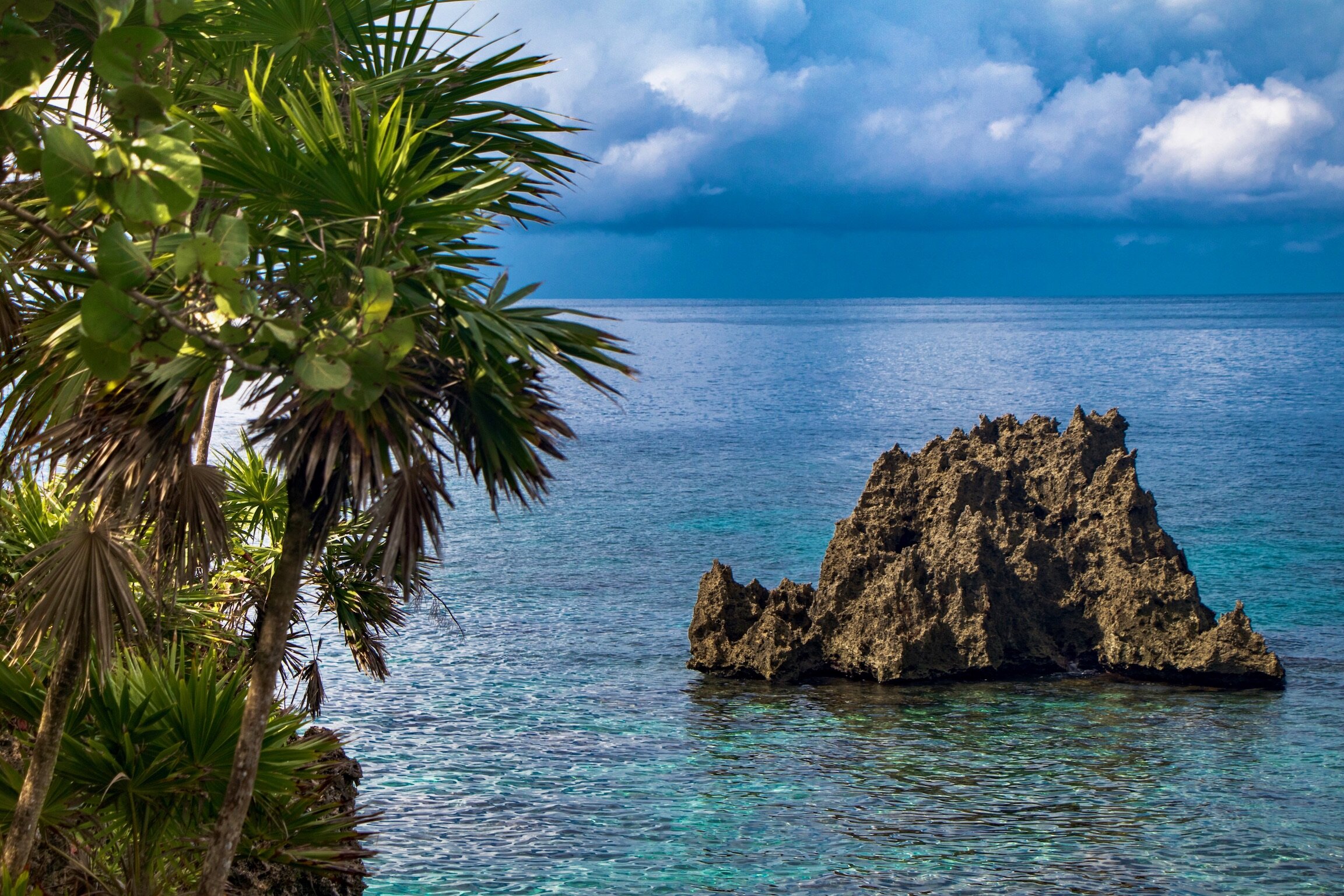
West Bay.
Most Popular.
Not to be confused with West End, West Bay is repeatedly voted as a top beach in the Caribbean. There are many reasons why West Bay has received this recognition, but the most important reason has to do with its geography. West Bay faces west. The sunsets are dead ahead and picturesque.
Beach Overview:
Water Sports
Calm Sheltered Water
Great Snorkeling
Calm waters.
The beach is also located on the northern tip of Roatan, which means it is on the leeward side of Roatan. The directionality of the island makes key and provides for sheltered water. The water in West Bay is like glass. It is still and has little (I mean very little) waves. The beach is shallow and makes for a great place for kids to swim. Snorkeling is also excellent inside the reef wall, and the on the other side of the reef wall the diving is among the most popular. Mary's Place, a dive site, is located in this area. It is no accident that the annual world championships for freediving are held in West Bay. Most hotels in West Bay located along the beach are pricey. The cheaper alternatives are behind the waterfront hotels. And there are excellent choices, but instead of a waterfront few, you'll have a view of a lush green landscape.
Precautions.
If we had to identify a few drawbacks to West Bay they would be these:
Lack of oversight and a lack of policies by urban developers has lead to the hotel line along the entire beach to be too close to the water's edge. This is great when the crowd sizes are small. It is also very intimate as your room or restaurant can be just a few steps away from pristine water. But when the crowds arrive, either on a cruise ship or from the mainland on holiday, it is brutal. During spring break, crowds are walking knee deep in the water as they look to move up and down the beach.
There is little "public" nightlife. Now West End is only a 5 minutes Taxi ride away (via a water Taxi), so this is not a total negative. But if you're staying in West Bay and decide to take a stroll in search of nightlife, or shopping, you may be disappointed. Your options will be limited by activities put forward by the various hotels.
Shopping is limited. There is a shopping area which is walking distance from most hotels in West Bay, but you'll be done with it in a few minutes. And if you're there for a few days, you'll need to travel to West End.

Scuba Diving.
S.C.U.B.A.
(Self Contained Underwater Breathing Apparatus)
Check Out Dive.
Many Dive Operators require a "checkout dive" before taking Scuba Divers out to open water. The main reason for a checkout dive is to gauge the experience of the individual diver. Divemasters and Instructors are interested in know which divers have issues with buoyancy and which divers might be a little anxious in the water. Checkout dives help Diver operators match a dive site to the skill set of the visiting Scuba diver.
Water Visibility.
One of the main variables in attracting Scuba Divers to ROA™ is the water visibility around the Bay Islands. Roatan, Guanaja, and Utila all enjoy 100 feet or more of water visibility almost all year round. During Roatan's rainy season, visibility drops to 80 feet or so on a bad day. The water temperature in Roatan is constantly in the low 80's during the summer months and high 70's during the cool season. Single dives can be done comfortably with a rash guard or a 1 mm shorty. Multiple dives over multiple days can be sustained wearing a 3 mm Scuba suite.
Scuba Resorts.
Many of the most established scuba resorts on the island have survived because of a steady supply of scuba divers who visit Roatan Honduras all year round. Most dive centers in our island are affiliated with PADI. There are a few top notch dive resorts affiliated with SSI.
Scuba Centers.
Scuba Diving centers in Roatan offer full gear rentals. It's is always a good idea to call in advance or visit the Scuba shop's website. But, most scuba shops offer enriched air (Nitrox) and dive computers and equipment for rent. Scuba divers dive at their own risk. For this reason, they travel with their equipment and depend on the dive center for their air tanks. But certified divers, often visit the island on a cruise or for short periods and choose to travel light. In these cases, they lean on the dive center for gear rental.
Top Destination.
Scuba Diving on our island can be an amazing experience. It is undisputed; the diving on our island is world-class. For years, Roatan has been a top destination for scuba divers. The island has been visited by diving aficionados for years and long before cruise ships started to arrive on the island with non-diving tourist.
Dive Boats.
Some Scuba resorts offer their services using small panga boats. Other, resorts, have larger boats in their fleet. Broadly speaking, Scuba operators on the northwest side can get away with using smaller boats because of the water and wind conditions. But Scuba operators along the southern shore or on the east side of the island use larger boats because of natural wind and weather patterns in these areas. Scuba centers that operate in waters that are fewer shelters may also need to travel greater distances to find suitable conditions for diving and larger boats make this commute over water more enjoyable.
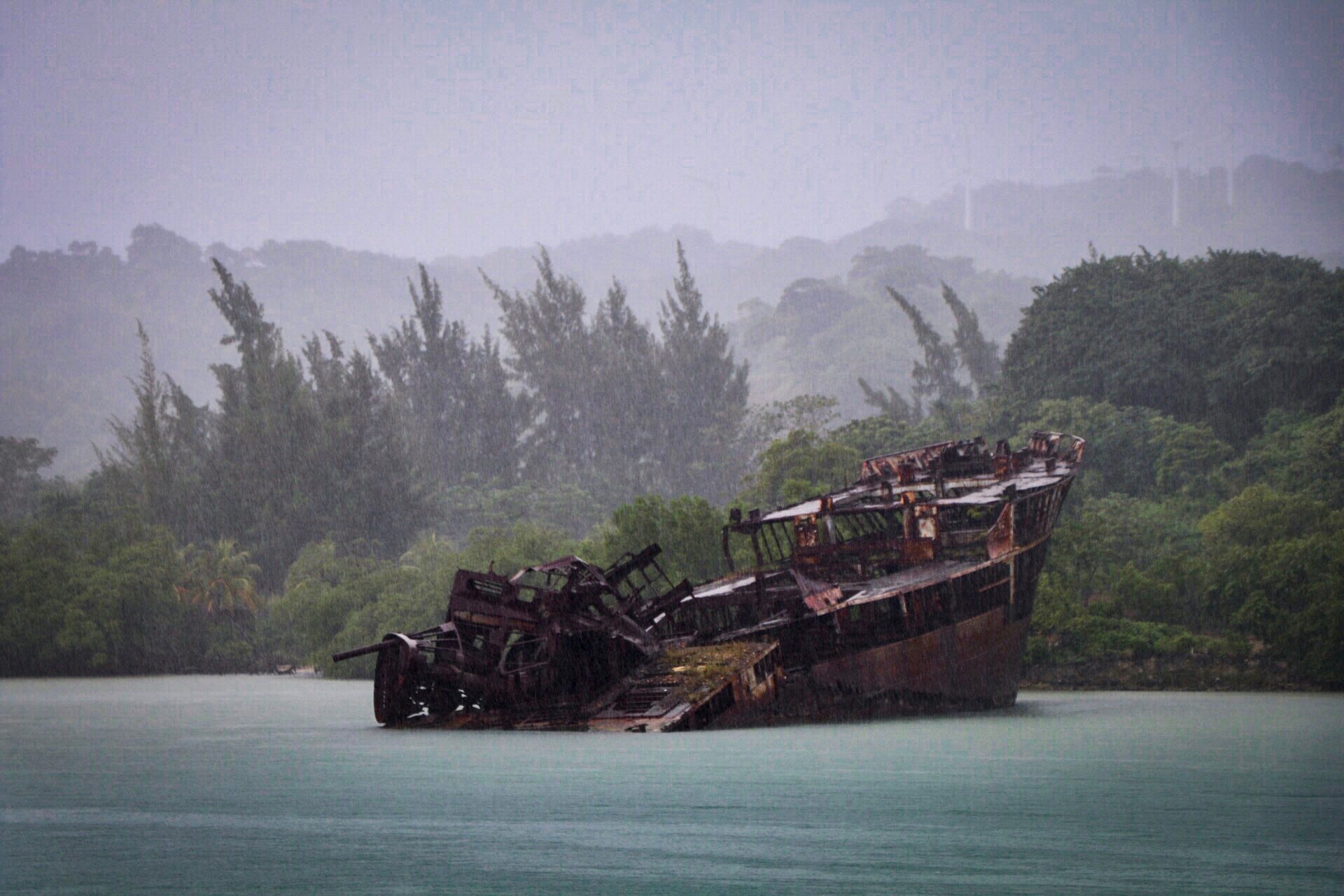
Climate Outlook.
Weather.
Wind Patterns
Currents
Seasonality
Temperatures
Leeward vs Win-ward.
The Island is long and narrow, and it has an east/west orientation. ROA™ has a windward and a leeward side. Most of the time (depending on weather) the wind flows from the south. This makes the southern shore more dramatic.
Southern Winds.
The wind impacts the environment above, below, and at the surface. Above the surface, the wind is constant. This reduces the presence of flies and makes it pleasant to sit outside. The wind on ROA™ has an impact below the surface as well. Water is more turbulent, and the currents are stronger. This makes the coral life and marine species different than those found off the northern shore.
The coral is bolder and more dramatic along the southern shoreline of Roatan. The southern shore also has fewer beaches, which means less sand, which means, fewer sand flies. And with the added wind, it is no wonder why so many prefer to invest in properties on the southern side of Roatan Island.
Rainfall.
The weather on ROA™ varies only ten degrees from average lows to average highs. Rainy season is considered to be between September and January. On the average Roatan expects to see 100 inches of rain each year.
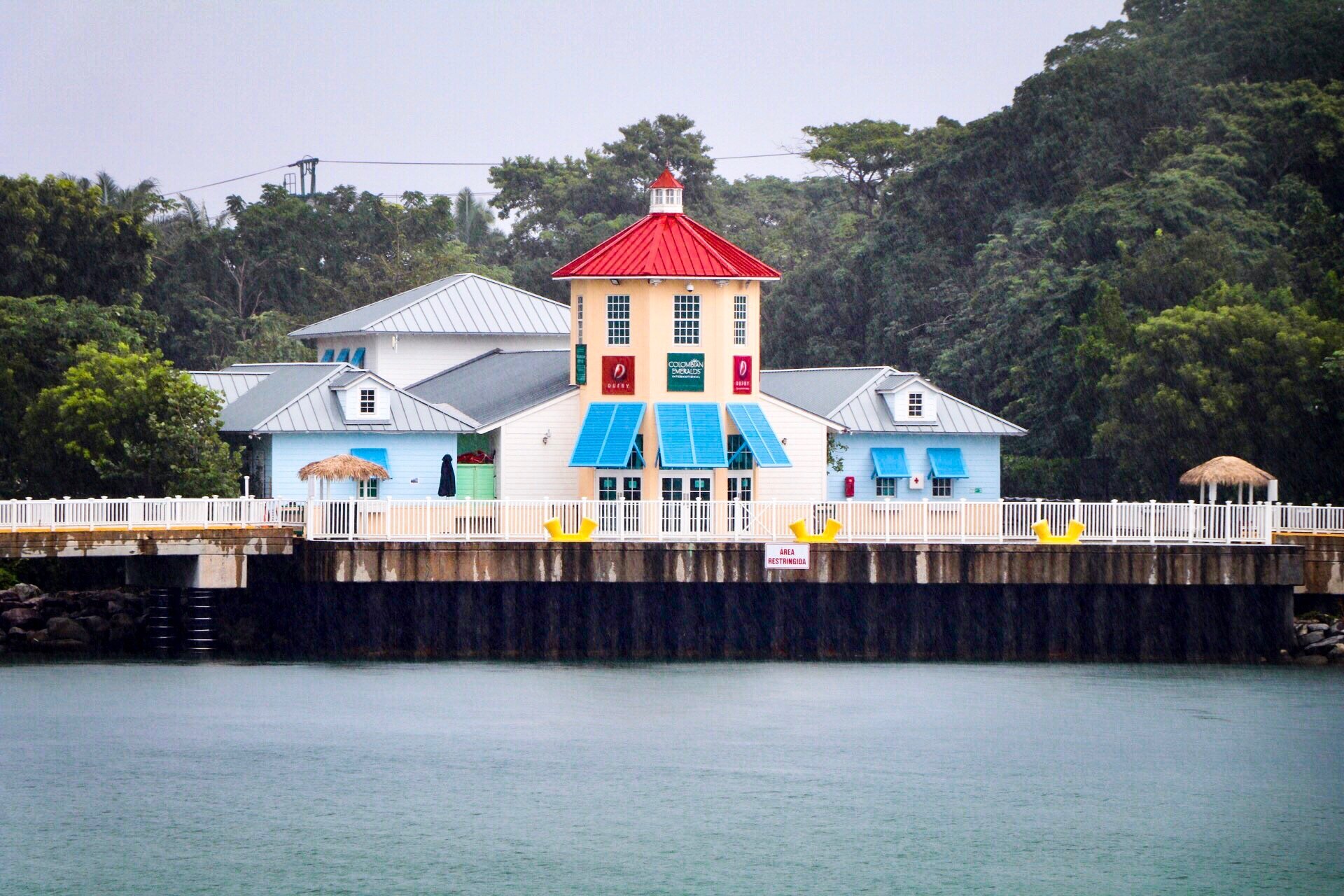
Ports of Entry.
Mahogany Bay.
Port of Call
Cruise Ships
Excursions & Tours
THE ARRIVAL OF CRUISE SHIPS was a deal changer for the residents of ROA™. Cruise ships sparked an economic boom and gave way to a rise in Roatan's popularity. Few knew where Roatan was, or what it means until it became a port of call for the major cruise ships. You don't have to look far to find someone who's visited the island, is getting ready to go to ROA™ or has just returned from the Island. First came the cruise ships. On it came non-diving tourist. This gave way to a boom of onshore tours and activities and a thirst for Roatan real-estate. Today, tourist can enjoy a wide range of things to do in ROA™ which extend well beyond fishing and Scuba Diving.
CRUISE SHIP ARRIVALS
Cruise travelers visiting our island will reach one of two ports of calls. Cruise liner will either dock in our Town Center (Port of Roatan) or will dock in Mahogany Bay which is located in Dixon's Cove. Mahogany Bay is the official welcome center for Carnival Cruise. Both ports are near Coxen Hole and only a few miles apart.
Port of Roatan.
Depth: 12 meters
Flow: 170 Ships/yr.
Visitors: 1.1 MM/yr.
PORT OF ROATAN is one of two major port of calls in Roatan Honduras. The port sits on approx. 6.5 acres and can accommodate up to three ships at one time. Port of Roatan is managed by Royal Caribbean and ITM Group as partners under a subsidiary. The port became operational in late 2008 and it is located in the Town Center of Coxen Hole, the capital of Roatan, or what locals call “el pueblo” (the town).
Port of Roatan can accommodate three cruise ships at any given time, one alongside and two in anchorage. An estimated 580 thousand passenger visit Roatan via Port of Roatan each year.

Coral Reefs.
Mesoamerican Barrier Reef.
Our Coral Reef.
There are three major coral reef formations in the waters around the island of Roatan. Also, the Cayman trench is located just west of the island bringing with it rich nutrients which feed a variety of species and give way to one of the worlds riches marine ecosystems.
Reef Health.
Without a doubt, our island is the most visited of the Bay Islands. But that is not to say, that the reef is in bad condition. Roatan established a marine reserve early on, and today the reef around the island is as good or better than reef colonies elsewhere in the Caribbean. The reef around the Bay Islands and in other parts of the Caribbean are damaged and show bleaching. Bleaching is caused by natural environmental and climate changes. There are also signs of man-made damages from moorings. But by in large, the reef and the marine life in Roatan is worthy of its global recognition and popularity. The biggest Barrier Reef (in the western hemisphere) surrounds our island. The Mesoamerican Reef System is second only to the Great Barrier Reef in northern Australia. Help take care of the surrounding Reef.
Preservation.
Scuba Divers cause some damage and generate pollution. But Scuba divers by in large are a responsible bunch and often remove debris when they see it. It is also part of a Scuba divers training to keep off the reef. One of the main reasons why divers damage the reef has to do with their buoyancy control or lack thereof. Buoyancy control is arguably one of the most difficult things for a Scuba Divers to master. And whenever they get too close to the barrier reef, they can come into contact with the reef. This is preventable in most cases by establishing a dive profile which keeps divers well above the bottom depth of the reef. Planning dives where the entry point is above a sandy bottom can also help as divers will have the opportunity to calibrate their buoyancy on their initial decent.
Species.
Roatan is surrounded by a majestic living coral on all sides. Almost every single coral species growing around the Caribbean today is found in the waters around the Bay Islands. This includes the famous Black Coral and a variety of sponges of all colors, shapes, and sizes. The east end of ROA™ has some of the largest barrel sponges in the area which grow to sizes of large refrigerators. Roatan's coral reef is at the center of the island's attractions. It attracts Scuba Divers from all over the world and thousands of fish species. Stoplight parrotfish, Goliath Grouper, Barracuda, Billfish, Queen angelfish, & Seahorses inhabit the shallow and deep waters around the Bay Islands. The habitats protected by the Roatan's Marine Park and PNMIB are the basis of the tourist economy of the Bay Islands.

The Bay Islands.
Islands & Cays.
Roatan.
Roatán (pronounced: [ro.a.ˈtan]) is the most popular and largest of the Bay Islands. Roatan sits between Guanaja and Utila. ROA™ is the gateway to the Bay Islands with an international airport (RTB) and two international cruise ports. Historically, Roatan was formally called Rattan and Ruatan. Roatan has two municipalities: The east end of the island is the Jose Santos Guardiola municipality. Roatan's west end is the municipality of Roatan.
Guanaja.
Guanaja is arguably the most remote and most exotic of the Bay Islands. Known as the "Venice" of the Bay Islands because of its waterways and canals, Guanaja is also the only island with a natural waterfall. Guanaja is only 7.5 miles (12 kilometers) from Roatan's east end. Most of Guanaja's residents live on "little Guanaja," also known as Bonacca, Low Cay, Guanaja, or just "The Cay." Approximately 10,000 people live on Bonacca. It is a densely populated Cay just off the coast of the main island of Guanaja. Savannah Bight and Mangrove Bight are the two most populated settlements on Guanaja. Guanaja's main industry is fishing. Fly fishing on Guanaja is among the best fly fishing in all of the Caribbean.
Utila.
Utila is the smallest of big three islands comprising the Bay Islands. Like both of its larger siblings (Guanaja & Roatan) Utila also sits on the Mesoamerican Barrier Reef. Pumpkin Hill is the official highest point on Utila Island, rising 243 feet (74 meters) above sea level. Utila has been part of our recorded history since the days of Christopher Columbus. Columbus first wrote about Utila on his fourth voyage to the area. Utila is knows for its whale shark sightings, its large PADI hub, and for the large amounts of backpackers that visit the island year round. Utila locals are primarily of Dutch, English, and African (Garifuna) decent.
Barbareta.
Barbareta Island is a small island located east of ROA™. The island can be seen from Roatan's East end, but it is not open to tourism as it is private property. Barbareta is about 3 miles long, and it is the fourth largest of the Bay Islands of Honduras. Scuba Diving off of Barbareta is among the best there is inside of the Bay Islands. Barbareta Wall (also called Morat Wall) is a drift dive which is sure to take your breath away. Scuba Diving Barbareta Wall is for experienced divers as the current is noticeable and the site does not have a mooring.
St. Helene.
Santa Helena (also known as St. Helene) is adjacent to Roatan, on its eastern tip. The eastern most point of ROA™ is comprised of large mangrove forest which bridges Roatan to Santa Helena Island. From the air, Santa Helena and Roatan appear to be one contiguous island. But, in fact, these are two separate islands. There are several canals through the mangrove forest which connect the northern and southern shores of Roatan and Santa Helena. Some of the most interesting mangrove tunnels are located in between the island of Roatan and the island of Santa Helena.
Morat.
Further to the east of Santa Helena Island is Morat Island. Unlike the divide between Roatan and Santa Helena (which is covered by a mangrove forest), the divide between Santa Helena and Morat Island is clear blue Caribbean water.
Pigeon Cay.
Further to the east of Santa Helena Island is Morat Island. Unlike the divide between Roatan and Santa Helena (which is covered by a mangrove forest), the divide between Santa Helena and Morat Island is clear blue Caribbean water.
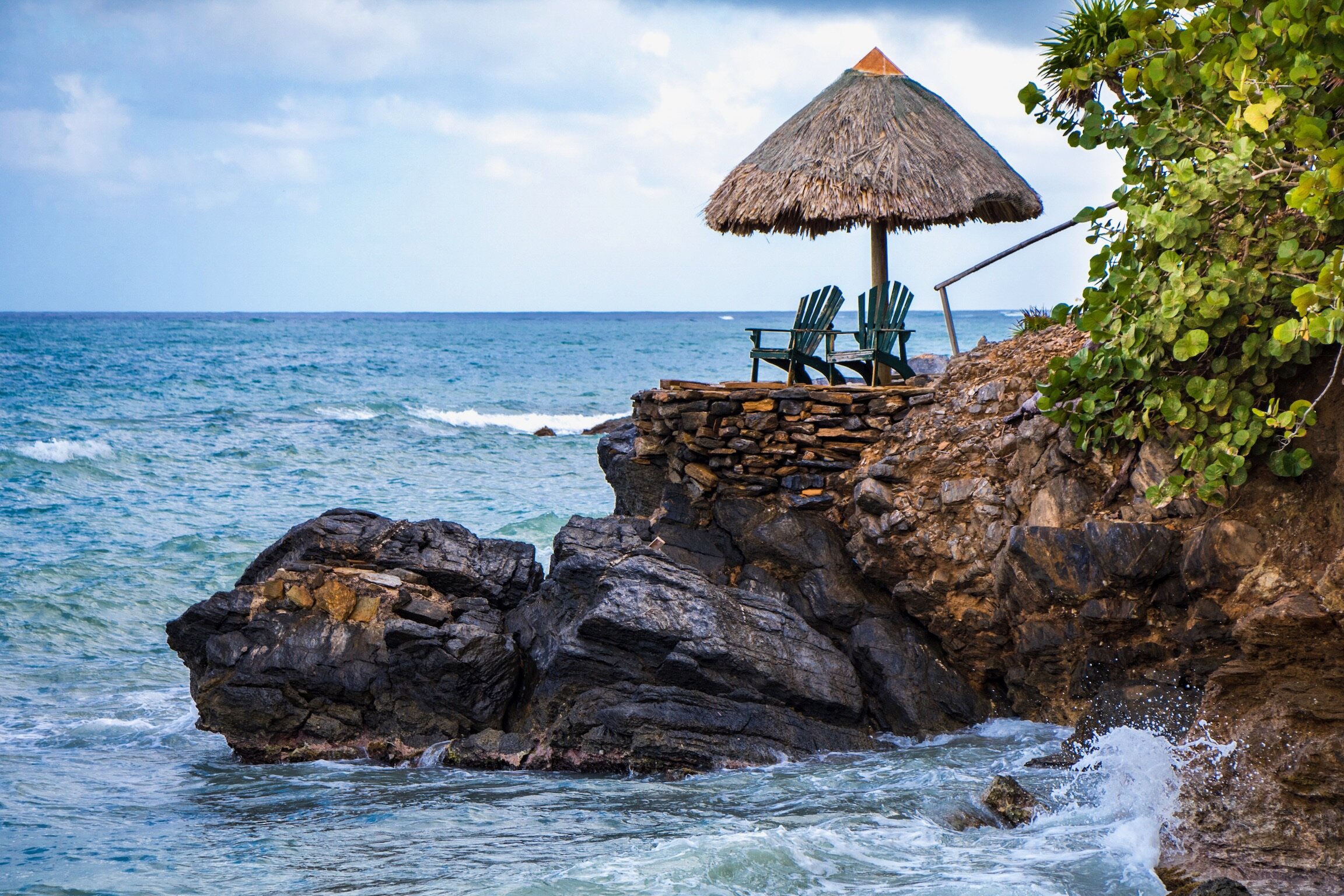
Topography.
Unique Formations.
The Ridge.
The Trench.
The Coral.
Roatan Island has developed reef formations in the totality of its costs and shorelines. The same is true for the islands of Guanaja and Utila. These coral reefs belong to the main morphological type found in the Caribbean: barrier reef, onboard reef, cay reef, lagoons, and coral reefs.
Bonacca Ridge.
WHAT FORMS THE BAY ISLANDS?
The Bonacca Ridge is an underwater mountain range which at its highest points pierces the surface to form the three main Caribbean islands known as the Bay Islands of Honduras. Roatan is the largest of the keys and islands piercing the surface.
Cayman Trench.
Roatan sits right off the edge of the Cayman Trench, which provides clear water at depth. These waters form a habitat for pelagic animals like turtles, dolphin, rays, and one of the most popular residents; the Whale Shark. Utila is world class destinations for spotting and swimming with Whale Shark. The Cayman Trench is located just off the west end of Roatan. For this reason, the deepest tourist submersible operates out of Half Moon Bay, next to West End, Roatan. Beneath interested in a ride of their lives can ride onboard a submarine to a depth of 3,000 feet.
Reef Formation.
The Coral reef forms a ring around the individual islands of the Bay Islands. Viewed from the water's edge, the Reef Wall can be right on the shoreline (Iron Shore), or it can be a few yards away. When the Reef Wall is away from the shoreline, it forms a lagoon between the shore and the Reef Wall. This area makes for excellent snorkeling as it provides sheltered water and motor boats are not allowed inside this area, except of course to enter and exit a certain dock or pick up point. Lagoons vary in depths but are 30 feet deep, and many have sandy bottoms. On the other side of the Reef Wall is a large drop-off or steep decline into deep blue water. The barrier reef forms some of the most interesting formations under the surface. Scuba Divers and Snorkelers enjoy crevices, caves, chimneys, and other interesting formations as they explore what lies beneath the surface.

Roatan
Communities.
Villages.
Many of our villages and towns reflect the British heritage and colonization over Roatan. ROA™ is small with several fishing settlements. Here we'll cover the main villages and towns in Roatan.
→ West End
→ West Bay
→ East End
Coxen Hole.
Coxen Hole is Roatan's capital. It is named after a pirate, John Coxen. It is rumored that John Coxen is berried in the cemetery adjacent the Port of Roatan. Coxen hole has a downtown area which gets heavily visited while cruise ships are docked in Roatan. Coxen Hole is home to one of the main public hospitals on Roatan.
It is also home to Eldon's, one of Roatan's more excellent grocery stores. Coxen Hole is the most populated town. City hall and the post office are in Coxen Hole. You'll be surprised to learn that Bojangles has three stores on the island, two in Coxen Hole and the third in French Harbour. Coxen Hole has a local market (Mercado), which makes for an interesting shopping experience. The market is just a few blocks off the main street. The shopping in Coxen Hole is very local. You'll come across fruit carts and street vendors as you walk the sidewalks from one storefront to the next.
French Harbour.
Many established business people call French Harbour home. New developments in and around French Harbour are quickly turning it into a formidable destination in Roatan. French Harbour is home to Roatan's Yacht Club and the Buccaneer. One of the Caribbean's largest fishing fleet sails out of the French Harbour, making it a strong industrial player on our island.
French Harbour is known as the economic center for Roatan. Because of its centralized location on Roatan, French Harbour is home to many banks, resorts, hotels, a newly remodeled Eldon's grocery store, and several prominent eateries as well. French Harbor is located at the halfway point between the west and east side of ROA™. It has access to a Yacht Marina. French Harbor is home to Eldon's Grocery Store which is one of the most reputable grocery stores in Roatan Island. French Harbor is an operation and working harbor. Many of the shipping and fishing boats dock and sail out of French Harbor. The Harbor also provides excellent shelter for larger ships when the weather turns bad. French Harbor is not a tourist town. It is a working town with local commerce. Fun to visit, but aside from a few restaurants, the town is more of a local attraction that it is a tourist attraction.

Our Locals.
The Caribs.
The Indigenous.
The Expats.
If you ask the Caribs, they are. If you ask the indigenous, they are. And if you ask the expats, they are. So who is right? - The answer may surprise you; they are all right, sort of.
Cultural Overview.
There is no doubt, some of the earliest settlers in Roatan where the Caribs, or Garifuna's. But the fact remains, they got there on British and Spanish ships. Roatan's history reveals a long-standing tradition and pattern of visitors from all over and with a very diverse background.
Each group was claiming their piece of Roatan while impacting the local culture in one way or another. Some early settlers brought industry; others brought festivity, some innovation, and others agriculture & farming. But regardless of the contributions by each of the settling groups, what is clear is that Roatan has long been visited and occupied by a diversity of cultures and ethnics groups.
Historically, and this is still true today, there are peaceful relationships among the various groups, and there are animosities as well. So don't let anyone tell you that one group does not get along with another or that everyone gets along just fine all the time. Both statements are partially true, both somewhat false. What is true, for ever everyone living on the island, is that tourism and visitors are a source of economic prosperity. The island depends heavily on its visitors as a source of income. Tourist needs locals. Locals need tourist. Simple.
Population.
Roatan's population is concentrated on the western side of the island. Some of its oldest residents, the Garifuna people, have settled in smaller villages throughout ROA™ island, including Punta Gorda. ROA™ sits on the second largest Barrier Reef in the world, the Mesoamerican Barrier Reef. The island can be fished year around, and Scuba Diving is done year around.
